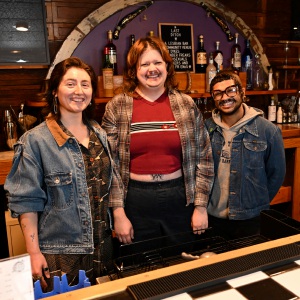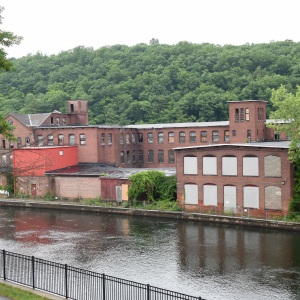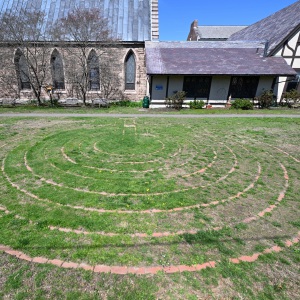Colrain voters to decide on CPA fund on Tuesday

| Published: 11-01-2024 1:04 PM |
COLRAIN — Voters will have a chance to reconsider a measure they turned down at Town Meeting in June. Colrain’s Question 6 on the Nov. 5 ballot asks whether or not the town should institute a 3% surcharge to its real estate tax in order to adopt the Community Preservation Act
The proposal to create a CPA fund that can support historic preservation, recreation and housing development lost by just two votes at Town Meeting earlier this year, having received 54 no votes and 52 yes votes.
David Greenberg, a member of the Community Preservation Exploratory Committee said that had it passed the measure would have automatically been put on the ballot for a final approval from voters. But since the vote was close, and the committee members are convinced more voters would have approved it, they decided to pursue a petition to put it on the ballot.
Committee members collected approximately 80 signatures, a few more than the 75 required for the measure to be put on the ballot. Greenberg said with a presidential election year supporters were expecting a huge voter turnout, and are hopeful the majority of Colrain voters will support adopting the CPA.
Massachusetts General Laws Chapter 44B, also known as the Community Preservation Act, enabled municipalities to raise funds for projects that preserve open space and historic sites, create affordable housing, and develop outdoor recreational facilities. Towns can add a surcharge of up to 3% to their real estate tax levy in order to create a CPA fund, which is overseen by a community preservation committee. The committee reviews and recommends expenditures, which must be approved by voters at Town Meeting.
Jade Mortimer, a member of the exploratory committee for the preservation fund, said they estimated the average annual cost would be $50 per homeowner, and in total the property tax surcharge would raise $50,000 to $60,000 a year that could be put towards a number of projects the town’s annual budget can not support.
She said CPA funds could go to support repairs and improvements to the town ball field, the library and history museum, to create a swimming area, historic signs and markers, hiking trails, and create grant and loan programs for down-payment assistance and other housing programs.
“Pretty much all our money goes to schools and roads,” Greenberg said. “There’s a lot of things we could do with this money.”
Article continues after...
Yesterday's Most Read Articles
 Northfield man dies in Erving motorcycle crash; Bernardston man injured in Deerfield crash
Northfield man dies in Erving motorcycle crash; Bernardston man injured in Deerfield crash
 Extension cord under hay ‘being considered a potential factor’ in Leverett house fire
Extension cord under hay ‘being considered a potential factor’ in Leverett house fire
 HS Roundup: Frontier boys, girls track earn wins over Mohawk Trail (PHOTOS)
HS Roundup: Frontier boys, girls track earn wins over Mohawk Trail (PHOTOS)
 Lesbian bar opens in Greenfield: Last Ditch is the new space for the Valley’s queer community
Lesbian bar opens in Greenfield: Last Ditch is the new space for the Valley’s queer community
 Montague seeks alternative demolition design for Strathmore buildings
Montague seeks alternative demolition design for Strathmore buildings
 New Salem town coordinator stepping down
New Salem town coordinator stepping down
Greenberg said with a 3% surcharge, the town is eligible to receive a 100% match from the state for the funds they raise.
“That’s real money we can use,” Greenberg said.
Since the act was passed in 2000, 196 towns have adopted the CPA and created a fund.
Mortimer said she believes it failed to pass at Town Meeting because the article was at the end of the warrant and some people had already left. Had just a few more voters been present, she’s confident it would have been passed. According to the town clerk’s office the town has 1,337 registered voters, but only a little more than 100 voters attended the meeting.
“That number represents a small number of registered voters,” Mortimer said of the 106 Town Meeting attendees.
The exploratory committee is hopeful the larger town population is more supportive of the proposal than the few who attended Town Meeting, but there are still some residents who are not in favor of it.
At the time of the Town Meeting, the Finance Committee did not recommend creating a community preservation fund. Finance committee members were unable to be reached, however Planning Board member Gregory Olchowski said the reasons against creating a community preservation fund are still applicable.
Olchowski spoke against the measure at Town Meeting and said he still believes the CPA was designed for urban areas, and does not make sense in Colrain.
“This is a collection of a tax for a yet-to-be-determined expenditure,” Olchowski said. “Colrain is a community that will spend money if it needs to, but projects need to be voted on at Town Meeting first.”
He said he was surprised that the measure “blindly” ended up on the ballot after Town Meeting voted against putting it on the ballot, and that the promise of a state match is an exaggeration. The town may be eligible for a 100% match, but that does not mean the town will receive a 100% match from the state each year.
Mortimer said the only downside she saw to creating the fund was the property tax surcharge, but she believed it was a negligible cost, and the proposal offers exemptions for those who can not afford it.
The proposal on the ballot includes three exemptions from the surcharge: one for low income homeowners and low/moderate income senior homeowners, one for the first $100,000 of the value of residential property, and one for the first $100,000 of the value of class three commercial and class four industrial property.
Olchowski said exemptions need to be applied for each year, and require submitting tax returns.
“I believe that’s a little intrusive,” Olchowski.
Election day is Tuesday, Nov. 5.
Reach Madison Schofield at 413-930-4579 or mschofield@recorder.com






 Mohawk Trail Regional School musical teaches ‘it’s never too late to chase your dreams’
Mohawk Trail Regional School musical teaches ‘it’s never too late to chase your dreams’ Greenfield church to celebrate World Labyrinth Day for 17th year
Greenfield church to celebrate World Labyrinth Day for 17th year White House slashes funds for asthma sufferers in western Mass.
White House slashes funds for asthma sufferers in western Mass. 
